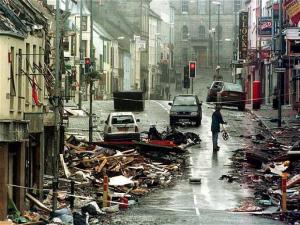
By David Young and Jonathan McCambridge (PA)
An independent inquiry into the Omagh bombing will examine alleged security failings that led a High Court judge to conclude the outrage could plausibly have been prevented.
The UK Government has outlined its terms of reference for the independent probe, which will be chaired by Lord Turnbull.
The dissident republican bomb exploded in the Co Tyrone town on August 15 1998, killing 29 people, including a woman pregnant with twins.
Northern Ireland Secretary Chris Heaton-Harris ordered the statutory inquiry into the attack last year in response to a court judgment that directed the Government to establish some form of investigation.
Michael Gallagher, whose son Aiden died in the Real IRA bombing, took the legal challenge that resulted in the Belfast High Court judge directing the state to act.
Mr Heaton-Harris outlined the terms of reference by way of a written parliamentary statement on Wednesday.
In his 2021 judgment, Mr Justice Horner directly recommended that the UK Government carry out an investigation into alleged security failings in the lead-up to the atrocity.
While having no jurisdiction to order the Irish government to act on the matter, the judge urged authorities there to establish their own probe in light of his findings.
A number of families of Omagh victims have repeatedly called for an inquiry to also be carried out into the bombing in the Republic of Ireland. Mr Heaton-Harris has also pressed the Irish government to act.
On a visit to Belfast on Wednesday, Ireland’s deputy premier, Micheal Martin, pledged to co-operate with the UK inquiry but said he did not think it made sense to have two inquiries into Omagh on both sides of the Irish border.
The inquiry will be established under the Inquiries Act 2005 with full powers, including the power to compel the production of documents and to summon witnesses to give evidence on oath.
In his statement, Mr Heaton-Harris said: “I want to first again express my deepest sympathy for all of those affected by the Omagh bombing in August 1998. It was a cruel atrocity carried out, not just on the people of Omagh, but on all those in Northern Ireland who supported the peace process.
“Following the announcement of the inquiry in February 2023, and the appointment of Lord Turnbull as chair in June 2023, I have now agreed with Lord Turnbull the terms of reference for the inquiry. These are focused on the four grounds identified by the Northern Ireland High Court as giving rise to plausible arguments that the bombing could have been prevented.
“With the terms of reference now agreed, the inquiry can press ahead with its work to comply with the judgment of the High Court, demonstrating the UK Government’s ongoing commitment to taking proper action on legacy-related matters.
“The inquiry chairman will now undertake a setting-up exercise to design the inquiry as he sees fit, and he will announce further detail about the inquiry in due course.”
The inquiry will examine the adequacy of the measures taken by UK state authorities, including the police, security forces and intelligence and security agencies, to disrupt dissident republicans who had been involved in attacks from December 1997 up to and including the Omagh bombing.
It will assess whether that approach changed following the Good Friday Agreement of April 1998.
It will also probe alleged intelligence-sharing failures between the UK and Irish authorities in the year-and-a-half leading up to the bombing.
It will further test an allegation made by former senior police officer Norman Baxter that detectives investigating previous dissident attacks were not given access to full intelligence information on suspects.
It will also examine claims around information allegedly passed to the security forces by a state agent known as Kevin Fulton in the months prior to the Omagh attack.
The inquiry will also look at intelligence said to have been obtained by the UK Government’s Communication Headquarters (GCHQ) from alleged vehicle and telephone monitoring of dissident republicans involved in the planning, preparation and conduct of the Omagh bombing and other earlier attacks.
The subsequent analysis and handling of the GCHQ intelligence by the state authorities will also be investigated.
The inquiry will also examine the extent and adequacy of steps taken by UK state authorities to track and analyse the mobile telephone usage by those suspected to be involved in dissident republican terror attacks before the Omagh bombing and whether that data may have aided efforts to disrupt the atrocity in Omagh.
Inquiry chair Lord Turnbull said he was confident the terms of reference would allow him to conduct a “thorough and robust investigation”.
“The first thing to stress is that the inquiry is an entirely independent body,” he said.
“I and my team will decide which are the relevant and important issues to explore and which witnesses will be called. We will do so in a manner which is entirely free of influence from the Government, or any of the United Kingdom authorities and agencies.
“The inquiry is established under the provisions of the Inquiries Act of 2005 which means that I will have the power to require the production of documents and the attendance of witnesses. I shall make use of those powers to any extent necessary.”
Lord Turnbull said the voice of the victims would be heard.
“Whilst I have not yet defined the exact procedure the inquiry will follow, it is my intention to invite families and survivors to commemorative hearings in Omagh at some point this year, so I can hear directly from those most affected by the bombing,” he said.
“I recognise that for some, however, revisiting events of the past would be too traumatic and that they may have no wish to return to such a difficult time in their lives and the lives of their own loved ones. I will fully respect that view, and the inquiry will recognise your privacy if this is your wish.”
The first phase of the inquiry will involve gathering information and materials.
The second phase will be the evidential hearings and Lord Turnbull said he intended for those to be held in public and broadcast live, unless it was necessary in the public interest for reasons of national security that they are held in private.
The chairman acknowledged it could take some time before he was in a position to produce a final report and said he would consider whether to issue an interim report ahead of the inquiry’s conclusion.
Mr Heaton-Harris reiterated his call for the Irish government to set up its own inquiry.
“I urge the Irish Government to now explain what consideration it has given to the setting up of an investigation in Ireland to discharge its obligations under article 2 of the European Convention on Human Rights, in line with the clear direction of the High Court,” he said.
However, speaking during his visit to Ulster University in Belfast, Mr Martin questioned the merit of having two separate inquiries.
He also denied that his government had not done enough to pursue those responsible for Troubles crimes.
“There is no amnesty in the Republic and there never has been an amnesty given in the Republic,” he said in clear reference to the UK’s contentious legacy laws.
“The Gardai and the Director of Public Prosecutions are independent of government.
“No direction has ever been given to either not to pursue cases that arose from the Troubles and not to prosecute, those are the facts.
“In respect of in and around Omagh, people were convicted in the Republic and imprisoned.
“More broadly speaking, in terms of the inquiry, I haven’t seen the terms of reference, we have been seeking the terms of reference for quite some time so that we could then respond.
“We have made it very clear that we would be fully co-operative with any such inquiry.
“In our view, one inquiry is optimal, two separate inquiries to me doesn’t make sense because there would be clear overlap and duplication and maybe crossing each other.
“We have mechanisms, we have changed the law in the Republic on a number of occasions to facilitate the provision of information that the Republic may have in respect of certain crimes.”
Mr Martin added: “Our view is, we’ll see the terms of reference and then we’ll work to ensure that we contribute to that inquiry.”
Stormont’s leaders were also asked about the probe on a visit to Limavady on Wednesday morning.
First Minister Michelle O’Neill said: “I have always supported a public inquiry when it comes to Omagh.
“I think that is really important that we allow those families to get to the truth, that they get to the truth that they have been campaigning for many, many years.”
Deputy First Minister Emma Little-Pengelly said: “We have discussed with the Irish government issues related to legacy.
“The Taoiseach (Leo Varadkar) was in Northern Ireland just a couple of weeks ago and I took the opportunity to urge full co-operation and collaboration with all public inquiries and investigations.”
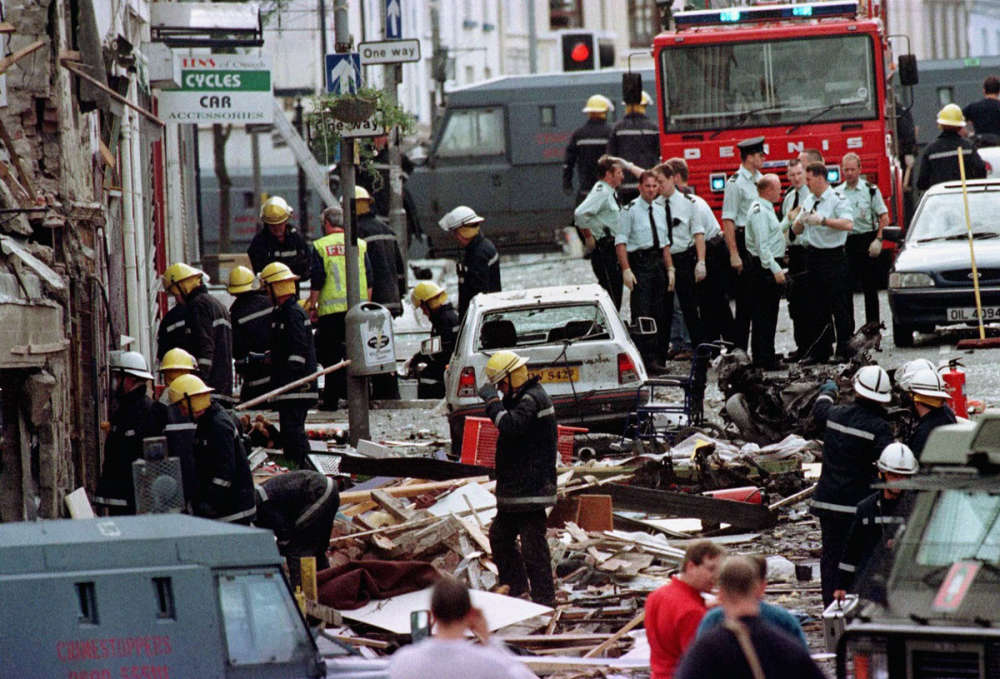


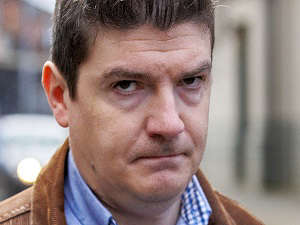 Former Sinn Fein press officer jailed for child sex offences
Former Sinn Fein press officer jailed for child sex offences
 Mixed reaction from Northern Ireland’s political leaders to Trump presidency
Mixed reaction from Northern Ireland’s political leaders to Trump presidency
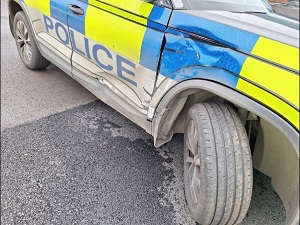 Two police officers injured after car rammed
Two police officers injured after car rammed
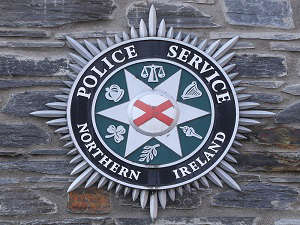 Pipe bomb attack on house ‘could have killed or injured’ – police
Pipe bomb attack on house ‘could have killed or injured’ – police
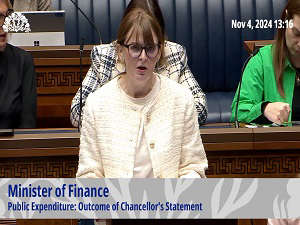 ‘Unprecedented’ Budget not enough to make up for austerity – Archibald
‘Unprecedented’ Budget not enough to make up for austerity – Archibald